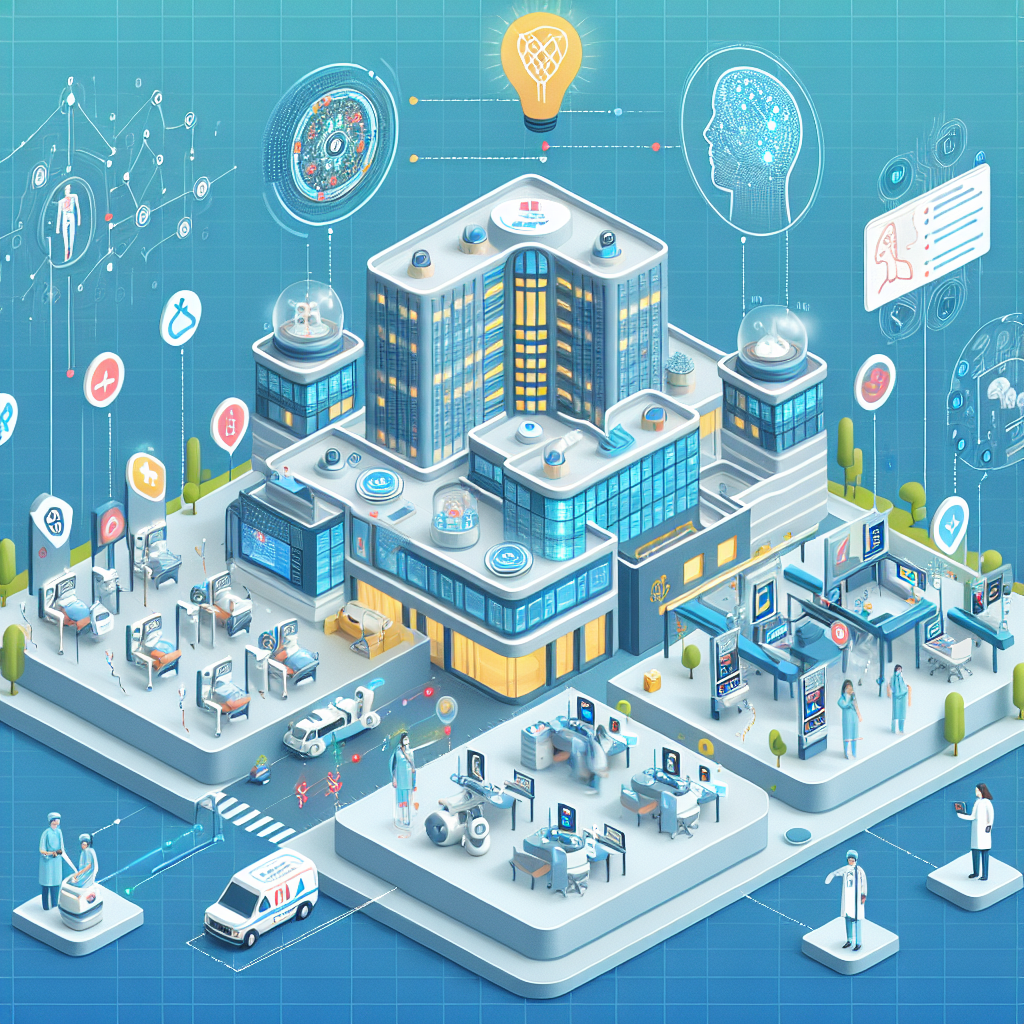Artificial Intelligence (AI) has become a transformative force in various industries, and healthcare is no exception. AI-driven solutions are revolutionizing the way healthcare is delivered, making processes more efficient, accurate, and personalized. From diagnosing diseases to predicting patient outcomes, AI is reshaping the future of healthcare. In this article, we will discuss the advantages of implementing AI-driven solutions in healthcare and explore how this technology is revolutionizing the industry.
1. Improved Diagnostics:
One of the most significant advantages of AI-driven solutions in healthcare is their ability to improve diagnostics. AI algorithms can analyze vast amounts of patient data, including medical images, lab results, and genetic information, to assist healthcare providers in making accurate diagnoses. For example, AI-powered systems can help radiologists detect abnormalities in medical images such as X-rays, MRIs, and CT scans with greater accuracy and efficiency. This can lead to earlier detection of diseases, resulting in better treatment outcomes for patients.
2. Personalized Treatment:
AI-driven solutions can also help personalize treatment plans for patients based on their individual characteristics and medical history. By analyzing large datasets of patient information, AI algorithms can identify patterns and trends that can inform treatment decisions. For example, AI can help oncologists determine the most effective cancer treatment for a patient based on their genetic makeup and tumor characteristics. This personalized approach to healthcare can lead to better outcomes and reduced side effects for patients.
3. Predictive Analytics:
Another advantage of AI-driven solutions in healthcare is their ability to predict patient outcomes and identify potential health risks. By analyzing patient data in real-time, AI algorithms can predict the likelihood of a patient developing a particular condition or experiencing a health event. This can help healthcare providers intervene early and prevent adverse outcomes. For example, AI-powered systems can predict which patients are at high risk of developing sepsis in a hospital setting, allowing healthcare providers to take proactive measures to prevent the condition.
4. Streamlined Administrative Processes:
AI-driven solutions can also streamline administrative processes in healthcare, making operations more efficient and cost-effective. For example, AI-powered chatbots can assist patients in scheduling appointments, answering questions about their medical conditions, and providing information about medications. This can reduce the burden on healthcare staff and improve patient satisfaction. AI algorithms can also analyze billing data to identify errors and discrepancies, helping healthcare organizations optimize their revenue cycle management.
5. Remote Monitoring and Telemedicine:
AI-driven solutions are also transforming the way healthcare is delivered, particularly in the era of telemedicine. By leveraging AI technology, healthcare providers can remotely monitor patients’ vital signs and health metrics in real-time, enabling early intervention when necessary. For example, wearable devices equipped with AI algorithms can track a patient’s heart rate, blood pressure, and oxygen levels, alerting healthcare providers to any signs of deterioration. This remote monitoring capability can improve patient outcomes and reduce the need for hospital readmissions.
6. Drug Discovery and Development:
AI-driven solutions are also revolutionizing the drug discovery and development process, making it more efficient and cost-effective. By analyzing vast amounts of data, including genetic information, clinical trial data, and scientific literature, AI algorithms can identify potential drug targets and predict the efficacy of new compounds. This can significantly accelerate the drug development timeline and reduce the cost of bringing new treatments to market. AI-powered systems can also help identify existing drugs that may be repurposed for new indications, expanding the range of treatment options available to patients.
7. Enhanced Patient Engagement:
AI-driven solutions can also enhance patient engagement and empower individuals to take control of their health. By providing personalized health recommendations, monitoring progress towards health goals, and delivering timely reminders, AI-powered systems can motivate patients to adopt healthier behaviors and adhere to treatment plans. This can lead to better health outcomes and improved patient satisfaction.
FAQs:
Q: Are AI-driven solutions in healthcare secure and compliant with privacy regulations?
A: Yes, AI-driven solutions in healthcare are designed to comply with strict privacy regulations, such as HIPAA in the United States and GDPR in Europe. Healthcare organizations implementing AI technology must ensure that patient data is protected and secure at all times.
Q: Will AI replace healthcare providers in the future?
A: While AI technology is transforming healthcare delivery, it is unlikely to replace healthcare providers entirely. AI-driven solutions are designed to augment the capabilities of healthcare providers, enabling them to make more informed decisions and deliver personalized care to patients.
Q: How can healthcare organizations implement AI-driven solutions effectively?
A: Healthcare organizations looking to implement AI-driven solutions should start by identifying their specific needs and goals. They should collaborate with AI technology providers and IT experts to develop a comprehensive implementation strategy that aligns with their organizational objectives. Training staff on how to use AI technology effectively and ensuring data security and privacy are also essential steps in the implementation process.
In conclusion, the advantages of implementing AI-driven solutions in healthcare are numerous and far-reaching. From improving diagnostics and personalized treatment to streamlining administrative processes and enhancing patient engagement, AI technology is revolutionizing the way healthcare is delivered. As this technology continues to evolve, healthcare organizations have the opportunity to leverage AI-driven solutions to improve patient outcomes, reduce costs, and enhance the overall quality of care. By embracing AI technology, healthcare providers can position themselves at the forefront of innovation and drive positive change in the industry.

